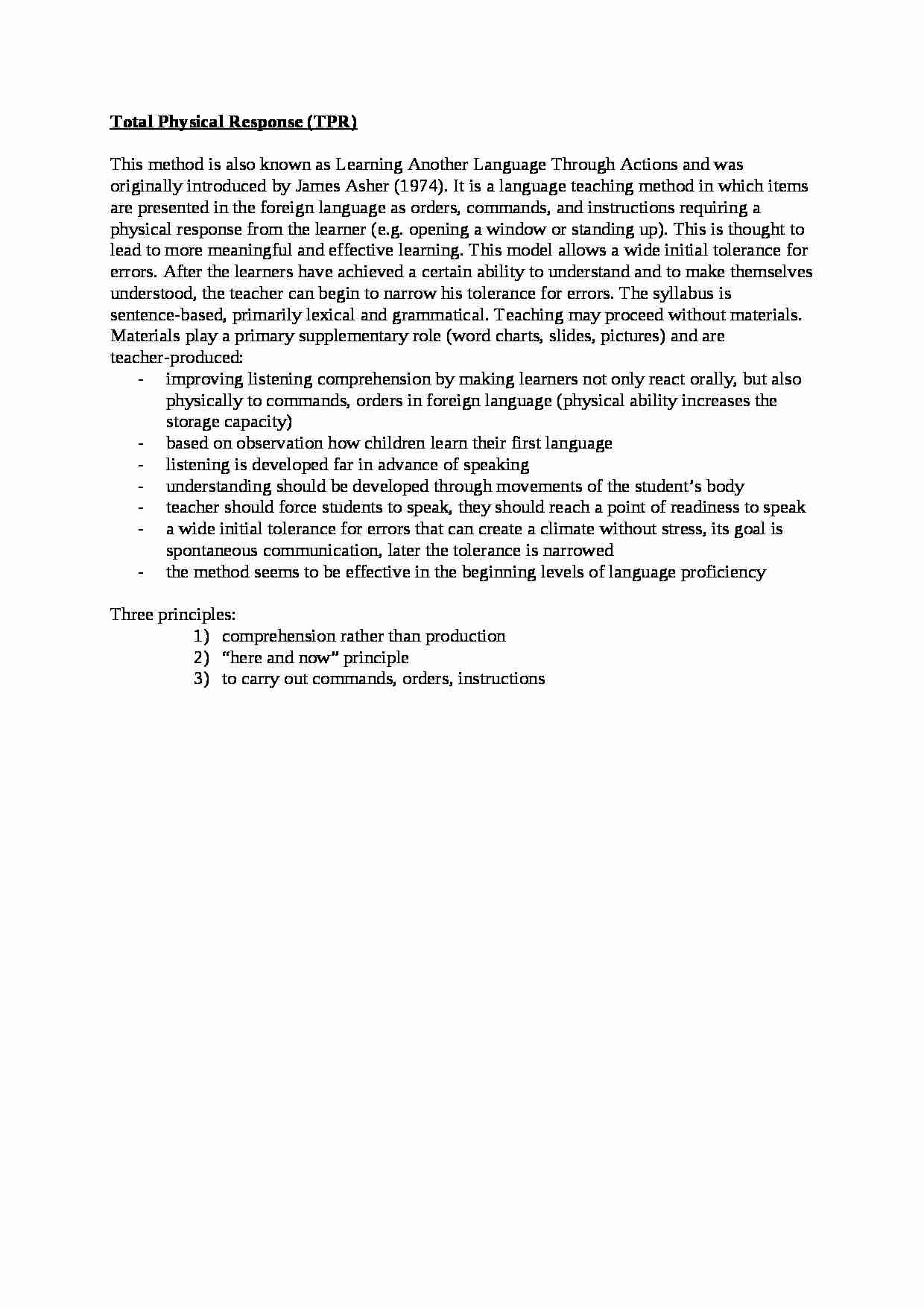
Total Physical Response (TPR)
This method is also known as Learning Another Language Through Actions and was originally introduced by James Asher (1974). It is a language teaching method in which items are presented in the foreign language as orders, commands, and instructions requiring a physical response from the learner (e.g. opening a window or standing up). This is thought to lead to more meaningful and effective learning. This model allows a wide initial tolerance for errors. After the learners have achieved a certain ability to understand and to make themselves understood, the teacher can begin to narrow his tolerance for errors. The syllabus is sentence-based, primarily lexical and grammatical. Teaching may proceed without materials. Materials play a primary supplementary role (word charts, slides, pictures) and are teacher-produced:
improving listening comprehension by making learners not only react orally, but also physically to commands, orders in foreign language (physical ability increases the storage capacity)
based on observation how children learn their first language
listening is developed far in advance of speaking
understanding should be developed through movements of the student's body
teacher should force students to speak, they should reach a point of readiness to speak
a wide initial tolerance for errors that can create a climate without stress, its goal is spontaneous communication, later the tolerance is narrowed
the method seems to be effective in the beginning levels of language proficiency
Three principles:
comprehension rather than production
“here and now” principle
to carry out commands, orders, instructions
... zobacz całą notatkę



Komentarze użytkowników (0)